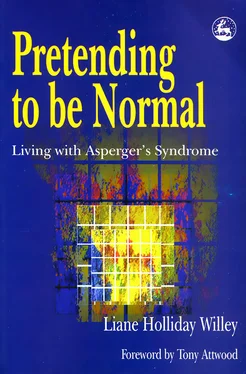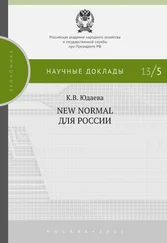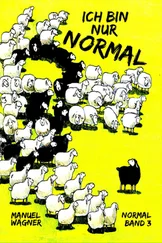Liane Holliday Willey - Pretending to be Normal
Здесь есть возможность читать онлайн «Liane Holliday Willey - Pretending to be Normal» весь текст электронной книги совершенно бесплатно (целиком полную версию без сокращений). В некоторых случаях можно слушать аудио, скачать через торрент в формате fb2 и присутствует краткое содержание. Город: London, Год выпуска: 2000, ISBN: 2000, Издательство: Jessika Kingsley Publishers, Жанр: Психология, Биографии и Мемуары, на английском языке. Описание произведения, (предисловие) а так же отзывы посетителей доступны на портале библиотеки ЛибКат.
- Название:Pretending to be Normal
- Автор:
- Издательство:Jessika Kingsley Publishers
- Жанр:
- Год:2000
- Город:London
- ISBN:1 85302 577 1
- Рейтинг книги:4 / 5. Голосов: 1
-
Избранное:Добавить в избранное
- Отзывы:
-
Ваша оценка:
- 80
- 1
- 2
- 3
- 4
- 5
Pretending to be Normal: краткое содержание, описание и аннотация
Предлагаем к чтению аннотацию, описание, краткое содержание или предисловие (зависит от того, что написал сам автор книги «Pretending to be Normal»). Если вы не нашли необходимую информацию о книге — напишите в комментариях, мы постараемся отыскать её.
Pretending to be Normal — читать онлайн бесплатно полную книгу (весь текст) целиком
Ниже представлен текст книги, разбитый по страницам. Система сохранения места последней прочитанной страницы, позволяет с удобством читать онлайн бесплатно книгу «Pretending to be Normal», без необходимости каждый раз заново искать на чём Вы остановились. Поставьте закладку, и сможете в любой момент перейти на страницу, на которой закончили чтение.
Интервал:
Закладка:
At first, I tried to convince myself my daughter had residual hearing loss as a result of the many ear infections she experienced when she was an infant and toddler. Sharon, our local parent educator, agreed with me, even though everyone else told me I was simply raising a daughter who had her own ideas about what to do and when to listen. They told me my daughter was simply stubborn just like her daddy, or hard-headed just like her mommy. These well meaning opinions never caught my reality. Sharon and I continued to suspect something more and finally, on her recommendation, my husband and I took our daughter to a speech and hearing clinic. As we had suspected, she did have a few measurable developmental delays. Her tests showed she had mild hearing loss and auditory discrimination deficiencies which, coupled together, made it difficult for her to separate one incoming sound from another. Those in the know assured me that though this was not the worst news we could have received, it was news we needed to respond to. We were advised to enroll our child in speech articulation classes and told to have her hearing re-evaluated in a year. And so began the adventure that would take us from insecurity and worry to understanding and hope.
In fast course, I began openly to share my concerns about my daughter’s struggles. I stood alone. People continued to dismiss my concerns as nothing more than paranoia and pessimism. Two years of schooling came and went with only me sensing and seeing the subtle differences, the invisible issues that clouded my daughter’s thinking. I continued to insist that no matter how normal she appeared, no matter how fine her academic abilities, no matter how on-track much of her development was, my daughter had differences that would sooner, and not later, need attention. I innately and logically knew she was holding on to every ounce of strength she had to keep herself from crossing the line that would take her to total chaos. And yet I had no idea how to help her avoid that deep hollow. It never dawned on me to give her what my father had been able to give me — the kinds of intervention therapies that educators suggest, but that came to him naturally and without a therapist’s counsel. To my dismay, I knew I lacked the focus and organization skills of my father, as well as his patience and self-discipline. I knew it would have been impossible for me to do for my little girl, what he had done for me… it would have been impossible for me to help her find her normal without someone else’s help. Trouble was, I had no idea where to find her that assistance. Luckily, a friend did.
One evening after a very trying day with my daughter, I found myself talking to a great listener, a friend of mine named Sarah. Forever and ever, I rambled on about the problems my daughter was experiencing, the frustrations I was having at not being able to help her, the confusion I felt from not being able to really identify what my child needed. I explained to Sarah my daughter was often easily upset, that she found it very difficult to calm herself down, that she did not seem to be able to control herself in certain areas like a crowded store or a busy school room or a loud cafeteria. I told how she never seemed to understand my directions, how she refused to wear certain clothes or wash her hair or brush her teeth. I complained that she seemed to be so smart, yet so unable to follow logic or reasoning. I expressed concern over the reality that she had few friends, that she was woefully lacking so many social skills. Sarah listened, nodded and never interrupted me. I knew there was really nothing she could do to help my daughter, but it was a great relief simply to express all of my worries to someone who was willing to listen and not dismiss my words as misplaced ramble. When I had said all I could say, Sarah asked me a question I had never been asked. She asked me if I had ever heard of Asperger’s Syndrome.
In no time at all, I gobbled up every speck of information I could find on AS as if it were the very oxygen I needed to breathe. The storm lifted and the answers that explained who my daughter and I were swirled around us like precious gemstones safely washed in with the tide. At last, I had reasons and explanations so rich and real I could almost touch them. Little by little the search I had begun for my daughter’s well being exposed my own pattern and structure. Slowly, I let bits and pieces of who I was escape my lips. For the first time I had the confidence to discuss openly how difficult it was to figure out what other people were communicating, how sounds seemed to glue themselves to one another so that it was grueling to pick them apart, how sensory cues seemed bound and determined to overwhelm and, most telling of all, how aggressive our tempers could become and how hard it was to restrain impulsive thoughts and actions. Still, I found most people told me I was just under too much stress or that I had fallen prey to the latest psychological trend, almost saying to me that AS was nothing more than the flavor of the month… a silly fad that would fade as quickly as it had appeared. I was told to relax, to find a real problem to complain about, to accept the fact that my daughter and I were just like everyone else.
I reacted strongly to these kinds of comments, because they implied that my daughter and I were looking for attention and making excuses for our behaviors and our struggles. In not so many words, I was being made to feel that our struggles were like lint we could pick away and toss off, if only we would make the effort to do so. Why, I wondered, did everyone refuse to accept my words as fact and not fiction? Why was I getting so much opposition? Why were my observations being discounted as so unimportant and unreliable? Why?
With Sarah’s help, I found the Kansas University Child Development Unit and the answer to my prayers. In a dream come true, I met experts in the field of Asperger’s Syndrome who took my comments and concerns seriously. Arrangements were made for my daughter to take a series of tests that would tell us if she was in fact neurologically atypical or «just like everyone else». What a relief to know we would have answers, at last.
Time stopped until the two-day evaluation period arrived, though it flew once we began. As I watched my daughter taking her tests, my heart pounded like a race horse running for the finish line. Each of her answers stood like a fine brush dipped in bright colors, eager to paint me a watercolor of who both my daughter and I were. My husband cried as each one of her difficulties became illuminated in her incorrect assumptions and incomplete answers. His heart broke for his daughter, the little one who puzzled him so. Tears streaked my face too, but my heart was not breaking, it was filling up with self-acceptance, it was filling up with possibilities. I knew then, that even though this was not a picture everyone would find beautiful or even acceptable, it was our picture and it was perfect to us. All the insecurities and frustrations I had carried for so many years were beginning to slip away. I had. not imagined a thing. I was different. So was my little girl. Different, challenged even, but not bad or unable or incorrect. I understood my husband’s tears and his fear for our daughter’s future, but I did not relate to them. I knew my innate understanding of what the world of AS is like would help my daughter make her way through life. Together, we would find every answer either of us ever needed.
I had finally reached the end of my race to be normal. And that was exactly what I needed. A finish — an end to the pretending that had kept me running in circles for most of my life. With a heightened sense of assurance, I discovered both my daughter and I needed to answer our own call as best as we could, exactly as we should. I accepted my need to design my own model, one that was built on my strengths and protected, as much as possible, from my weaknesses. It was perfectly okay to be a unique wife, friend and daughter. I could be a quirky mom. All I needed to do was find my way to make things work for the best.
Читать дальшеИнтервал:
Закладка:
Похожие книги на «Pretending to be Normal»
Представляем Вашему вниманию похожие книги на «Pretending to be Normal» списком для выбора. Мы отобрали схожую по названию и смыслу литературу в надежде предоставить читателям больше вариантов отыскать новые, интересные, ещё непрочитанные произведения.
Обсуждение, отзывы о книге «Pretending to be Normal» и просто собственные мнения читателей. Оставьте ваши комментарии, напишите, что Вы думаете о произведении, его смысле или главных героях. Укажите что конкретно понравилось, а что нет, и почему Вы так считаете.












